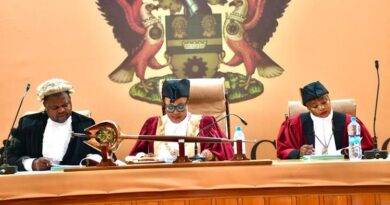Rising Fuel Prices in Zambia Under UPND Leadership Cause Concerns Among Citizens
Fuel plays a crucial role in Zambia as it influences the prices of goods and how the government handles its finances. Currently, Zambia, under the leadership of the UPND, is confronting a significant challenge as fuel prices are rapidly increasing. This trend is not limited to fuel alone but also extends to essential commodities like mealie meal, making life more difficult for ordinary citizens and raising concerns about the situation.
Acting PF Media Director, Edwin Lifwekelo, explained in a statement that the issue with high fuel prices is their negative impact on people’s ability to afford essential items. When fuel prices rise, individuals have less money available to spend on necessary goods and services, which, in turn, has detrimental effects on businesses and the overall national economy.
Moreover, businesses that heavily depend on transportation, such as delivery companies, are experiencing increased operating costs. To offset these expenses, they are forced to raise their service charges, resulting in higher costs for consumers when purchasing various items.
Mr. Lifwekelo highlighted that the soaring fuel prices have a ripple effect, causing the prices of various goods to rise as well. This situation places significant hardships on people, leading to frustration and sometimes public anger towards the government’s perceived inaction. The impact goes beyond anger; it’s about individuals facing financial difficulties and struggling to meet their needs.
Furthermore, the agricultural sector, a cornerstone of our nation’s economy, is also taking a hit from these elevated fuel prices. Farmers depend on fuel for their machinery and transportation, and when fuel costs escalate, it drives up the expenses associated with farming. Consequently, this has implications for the cost and availability of food, affecting both farmers and consumers alike.
Mr. Lifwekelo points out that although efforts are being made to adopt cleaner and more efficient energy sources, challenges persist. Fluctuating exchange rates are affecting our ability to trade with other countries and maintain a stable economy, making the situation more difficult to manage.
Mr. Lifwekelo emphasizes that the situation in Zambia is extremely concerning. The people of Zambia deserve leaders who prioritize their well-being and take action to address the challenges they face. He urges that it’s time for a change and for the people to make their voices heard before the situation worsens and becomes even more difficult to resolve.



